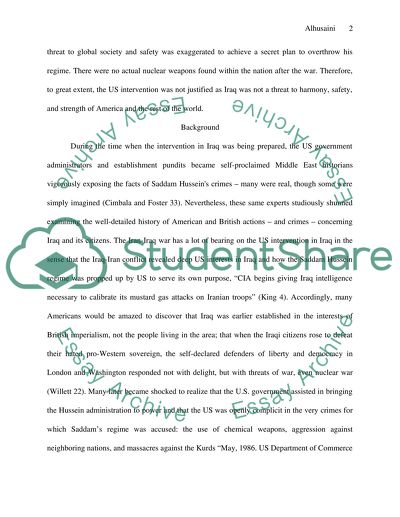Cite this document
(“Argumentive essay about the intervention of the united states in iraq Research Paper”, n.d.)
Argumentive essay about the intervention of the united states in iraq Research Paper. Retrieved from https://studentshare.org/history/1399667-argumentive-essay-about-the-intervention-of-the
Argumentive essay about the intervention of the united states in iraq Research Paper. Retrieved from https://studentshare.org/history/1399667-argumentive-essay-about-the-intervention-of-the
(Argumentive Essay about the Intervention of the United States in Iraq Research Paper)
Argumentive Essay about the Intervention of the United States in Iraq Research Paper. https://studentshare.org/history/1399667-argumentive-essay-about-the-intervention-of-the.
Argumentive Essay about the Intervention of the United States in Iraq Research Paper. https://studentshare.org/history/1399667-argumentive-essay-about-the-intervention-of-the.
“Argumentive Essay about the Intervention of the United States in Iraq Research Paper”, n.d. https://studentshare.org/history/1399667-argumentive-essay-about-the-intervention-of-the.


